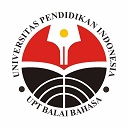Japanese Language Education and Examination for Indonesian Specified Skilled Worker (SSW) Candidates: An Analysis of the Pre-Departure Program
Abstract
This study examines how Japanese education prepares Indonesians for Japan’s specified skilled worker (SSW) programs. As economic ties between Indonesia and Japan grow, so does the demand for skilled labor in key sectors. Japan’s SSW program aims to attract foreign workers, including Indonesians, to fulfill these needs. Qualitative interviews were conducted with Indonesian sending organizations and candidates in preparatory programs for SSW visas. The research focuses on the Japanese language education framework, its alignment with industry requirements, curriculum development, teaching methodologies, and language proficiency training. The study also evaluates the impact of government policies and bilateral agreements on skilled migration between Indonesia and Japan. It aims to offer insights to policymakers, educators, and stakeholders to enhance educational programs and support mechanisms for better integration into the Japanese labor market. By visiting nearly 60 vocational training institutions licensed to send interns to Japan and several Sending Organizations (SO) with SP3MI permits, the study found that the SSW program has diversified teaching materials and introduced a new curriculum for Japanese language education in Indonesia. However, it has also led to a shortage of instructors in non- academic Japanese learning institutions. Additionally, uncertainty surrounding the language examination has caused many candidates to prefer the TITP over the SSW program. Addressing these issues from a human capital perspective, this study highlights the need for immediate measures such as sector-specific curricula and comprehensive instructor training to improve the quality of SSW candidates, thereby enhancing their experiences in Japan.
Keywords
Full Text:
PDFReferences
Becker, G. S. (1964). Human Capital: A Theoretical and Empirical Analysis with Special Reference to Education (1st ed.). New York: National Bureau of Economic Research
Carliner, G. (1981). Wage differences by language group and the market for language skills in Canada. Journal of Human Resources, 16(3), pp.384-399
Chiswick, B. R., & Miller, P. W. (2014). International migration and the economics of language. IZA Discussion Papers, 7880, pp.5.
Esser, H. (2006). Migration, language and integration. Berlin: WZB.
Lee, H. (2015). Challenges of and coping with immigration in Korea: The state, civil society, and migrant workers. In M. Caballero-Anthony & T. Menju (Eds.), Asia on the Move: Regional Migration and the Role of Civil Society (pp. 44–64). Washington D.C.: Brookings Institution Press.
Lee, J. (2010). Amendment to the naturalization examination and its social impact on international marriage immigrants in South Korea. TESOL Quarterly, 44(3), pp. 575–585.
McManus, W., Gould, W., & Welch, F. (1983). Earnings of hispanic men: The role of English language proficiency. Journal of Labor Economics, 1(2), pp.101-130.
Mizuho Research Institute. (2017). Shoshi Koreika de Rodoryoku Jinko ha Yon Wari-Gen – Rodo Ryoku Ritu Hiki Age no Kagi wo Nigiru Hataraki Kata Kaikaku [The labor force will fall by 40% due to a declining birthrate and aging population - work style reform is the key to raising the labor force participation rate]. Retrieved from https://www.mizuho-rt.co.jp/publication/mhri/research/pdf/insight/pl170531.pdf
Ortloff, D. H., & Frey, C. J. (2007). Blood relatives: language, immigration, and education of ethnic returnees in Germany and Japan. Comparative Education Review, 51(4), pp. 447–470.
Seong, S. (2019). The analysis on discrimination experienced by immigrants in Korea and its implications of multicultural human rights education policies. In J. Gube & F. Gao (Eds.), Education, ethnicity and equity in the multilingual Asian context (pp. 161-178). New York: Springer.
Tainer, E. (1988). English language proficiency and earnings among foreign-born men. Journal of Human Resources, 23(1), pp.108-122.
The Japan Foundation (2021), Survey Report on the Japanese Language Education Abroad, pp.33. Retrieved from (https://www.jpf.go.jp/j/project/japanese/survey/result/dl/survey2021/all.pdf
Yang, I. Y., Park, S., Lee, S., & Min, B. (2020). Factors affecting immigrants’ host country language proficiency: Focusing on the differences between migrant workers and marriage-migrant women in South Korea. Migration and Language Education, 1(1), 14–30.
Indonesia Ministry of Manpower. (2019). Retrieved from https://www.bp2mi.go.id/berita-detail/faq-ssw-jepang
Ministry of Health, Labour and Welfare (2019). Aratana Zairyu Shikaku “Tokutei Gino” ni tsuite [About the New Residence Status “Specified Skilled Worker”]. Retrieved from https://www.mhlw.go.jp/content/12601000/000485526.pdf
DOI: https://doi.org/10.17509/japanedu.v9i1.71187
Refbacks
- There are currently no refbacks.
Copyright (c) 2024 JAPANEDU: Jurnal Pendidikan dan Pengajaran Bahasa Jepang

This work is licensed under a Creative Commons Attribution-ShareAlike 4.0 International License.
 Published by:
Published by: Department of Japanese Language Education, Faculty of Language and Literature Education
Universitas Pendidikan Indonesia
 Online ISSN: Online ISSN:2528-5548 |

JAPANEDU: Jurnal Pendidikan dan Pengajaran Bahasa Jepang (e-ISSN:2528-5548) lisenced under a Creative Commons Attribution-ShareAlike 4.0 Internasional (CC BY-SA 4.0)


